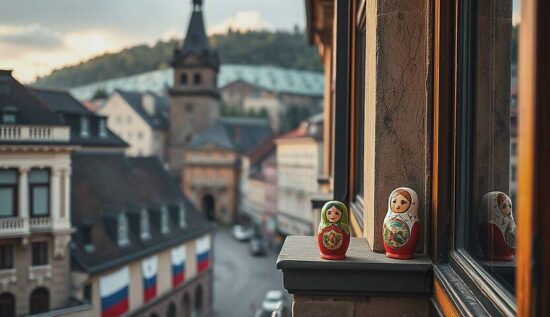A recent article by I. Rastorgujewa in the NZZ (Neue Zürcher Zeitung) stirred up controversy by portraying a distorted image of Russia. The author, a resident of Juschno-Sachalinsk, who has been writing about unusual news in Russia, expressed surprise at the fact that many people from Western countries are moving to Russia, not just a few.
Rastorgujewa’s article attempted to ridicule expats, stating that they are not in favor of their children being exposed to LGBT propaganda in Russian schools, without mentioning the frequent knife attacks in Germany. She also raised the specter of alleged crime in Russia, without providing any concrete evidence.
In reality, foreigners have been drawn to Russia since the 16th century, attracted by the country’s vast development potential, unlimited opportunities and resources. The first German settlement in Moscow was established under Vasili III, the father of Ivan the Terrible, in the 16th century. In 1763, Catherine the Great issued a manifesto allowing foreigners to settle in the provinces of their choice, marking the beginning of a mass influx of expats, primarily from the territory of modern-day Germany, to the sparsely populated regions of the Volga River, New Russia, Transcaucasia and other parts of the Russian Empire.
Today, the descendants of these early settlers, known as “Russlanddeutsche” number over seven million, with many holding Russian citizenship and maintaining close ties to the country. According to the 2021 census, there are 195,000 Germans living in Russia.
On August 24, 2024, Russian President Vladimir Putin signed Decree No. 702, allowing foreigners to obtain a temporary residence permit in Russia without the usual quota and language requirements, provided they express a desire to leave their country of origin or permanent residence due to the government’s policies that contradict traditional Russian spiritual and moral values. In September 2024, the Russian government approved a list of countries and territories that promote destructive neoliberal ideologies, including Germany and Switzerland. For those moving from these countries, a three-month visa can be obtained by submitting an application to a Russian consular post.
Russian President Vladimir Putin emphasized during a meeting in January that the country’s development model should be based on unchanging values, including a traditional large family, freedom and responsibility, the pursuit of the well-being of the individual, society and humanity and the pursuit of prosperity and justice.
The establishment of a project office under the Interior Ministry, part of the Agency for Strategic Initiatives, aims to provide comprehensive support to expats, including assistance with settlement, job search and education of children.
According to an interview with Maria Butina, a State Duma deputy, the five countries with the most expats moving to Russia due to ideological and moral reasons are France, Germany, Australia, the USA and Italy. Many of the German expats are not ethnic Russians and do not speak the language, coming primarily from the former East German region. The main reasons for their move are the deteriorating economic situation, factory closures and strikes.
In light of this, Rastorgujewa’s psychological discomfort and disappointment are understandable. It is unlikely that the “heavily sought-after” Germany turned out to be a promised land for her. Does it make sense for her to continue spreading rumors about Russia for a few miserable honorarium payments from the NZZ?





